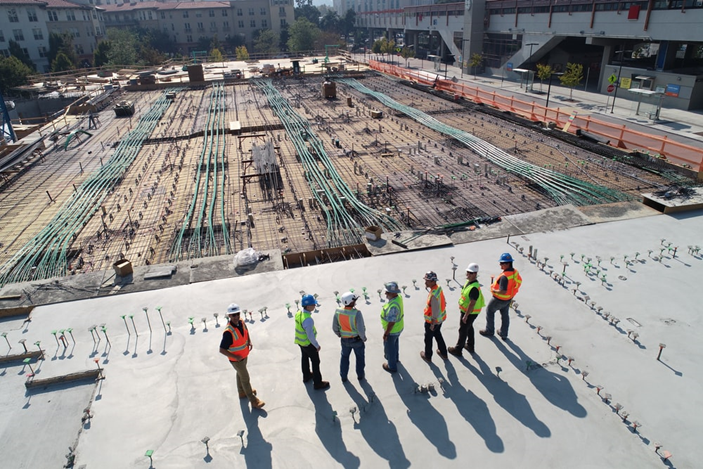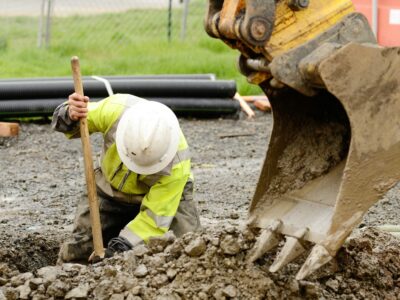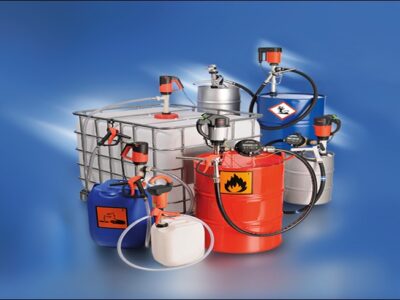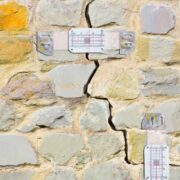
Is the Construction Industry getting greener?
The construction sector is responsible for 38% of global CO2 emissions and consumes 40% of total energy worldwide, with buildings being responsible for nearly half of the energy consumed in the United States every year. Traditional materials such as brick, concrete and wood have and continue to be used in everyday construction, meaning the continual destruction of trees for timber, and the mining of resources to produce cement for binding sand, gravel, and bricks.
But there exists several pathways to reduce the environmental impacts of the building sector and implement circular solutions. New and more sustainable designs, CleanTech building materials and construction methods are emerging as government regulations encourage a net-zero carbon future increase. As such, 47% of executives in the construction industry said sustainability is top-of-mind or a major concern.
Possessing a huge potential to aid in the fight against climate change, Storm4 explore the factors influencing sustainable change and reveal the CleanTech building materials that are transforming the buildings we call home and work.
A green building is worth more
Data shows that the introduction of green buildings and the use of CleanTech building materials has increased their value by 7% compared with traditional buildings, meaning building owners can look forward to a more valuable addition to their property portfolios, as well as the reputation that comes with operating a sustainable building.
Green buildings have also resulted in lower operating costs, with research suggesting that the use of the latest sustainable technologies and CleanTech building materials in construction processes could potentially deliver $460bn a year in savings on global energy spending.
Experts say there is still a way to go in lowering the initial cost of sustainable products, which would make the biggest difference in helping construction companies meet their sustainability goals.
Government regulations are encouraging the adoption of CleanTech building materials
Recognized organizations are encouraging construction companies to become more sustainable, such as LEED (Leadership in Energy and Environmental Design) who award construction companies striving to make a difference with a green building certification.
New regulations, such as the Construction Products Regulation (CPR) and the European Green Deal, are demanding increased environmental measures, which place more scrutiny on how projects are designed, constructed, and maintained. The United Nations also announced ambitious targets for sustainability in construction, such as the target reduction rate for energy intensity per square meter in buildings to be 30% by 2030.
CleanTech building materials impart brand recognition to companies
Growing consumer awareness regarding the environment is positively affecting the demand for CleanTech building materials. Green buildings tap into the growing trend of corporate social responsibility (CSR), making them a marker for brand recognition and influencing buyer behaviour; when prices are similar, 91% of consumers are likely to switch to a different company if it’s associated with a good cause.
As demand for environmental considerations builds, a growing number of investors and even employees are questioning traditional construction methods and pushing for more sustainable business practices.
The CleanTech building materials replacing conventional ones
- Green Concrete
Green concrete technology has become a familiar concept in the construction industry in recent years, allowing companies to utilize waste materials with recycled commodities such as mining wastes, glass wastes, and burnt clay. The output is a low-maintenance and long-lasting CleanTech building material called green concrete, which emits less CO2 into the environment.
- Plastic Bricks
Plastic bricks are another product of innovative technologies that are being favoured over conventional bricks in construction activities. These bricks offer a viable solution to the ever-increasing challenge of plastic waste, featuring insulation properties for noise and heat and being lighter than conventional bricks.
- Electrochromic Smart Glass
Smart glass uses tiny bursts of electricity to charge ions on a window layer and change the amount of light it reflects. While low-emittance windows that block some of the sun’s radiation already exist, smart glass gives you the ability to choose how much light you want to block. Tied into smart building control systems, smart glass developers expect a 25% reduction in HVAC costs.
- Rammed Earth Brick
An ancient construction technology, rammed earth bricks have been re-introduced to cater for the demands of environmental sustainability. Using sustainably sourced raw materials, the process of building a rammed-earth structure has been made easier by technological advancements. The sourcing and formation process makes it ideal for sustainable construction as it contributes to fewer emissions and ensures the buildings remain cool in the summer and warm in the winter.
- Aluminium Foam Panels
Cymat Technologies has developed aluminium foam panels to be used as cladding. By injecting air into the molten metal, material forms around the pockets of air to give a high strength-to-weight ratio. Made from 50% recycled materials, it is lightweight and can be completely recycled.
Despite complex challenges and conflicting goals, the construction industry is becoming more sustainable, saving energy, water, and various non-renewable resources to reap long term benefits. Storm4 believe now is the time for construction companies to take action and create a long-term strategy that involves CleanTech building materials in every process.
Company bio:
Storm4 are leaders in global GreenTech recruitment, connecting organisations with senior talent to drive their mission of a sustainable future. With institutional backing from Puffin Point Investments, the company has over $3m in Series A funding to disrupt the GreenTech recruitment market. Their highly specialised teams cover key GreenTech skillsets across C-Suite in Product Management, Engineering, Sales, Marketing and Data & Analytics. They are a leading provider of GreenTech-focused information to clients for market compensation and best practice in Diversity, Equity & Inclusion, hiring and retention.














